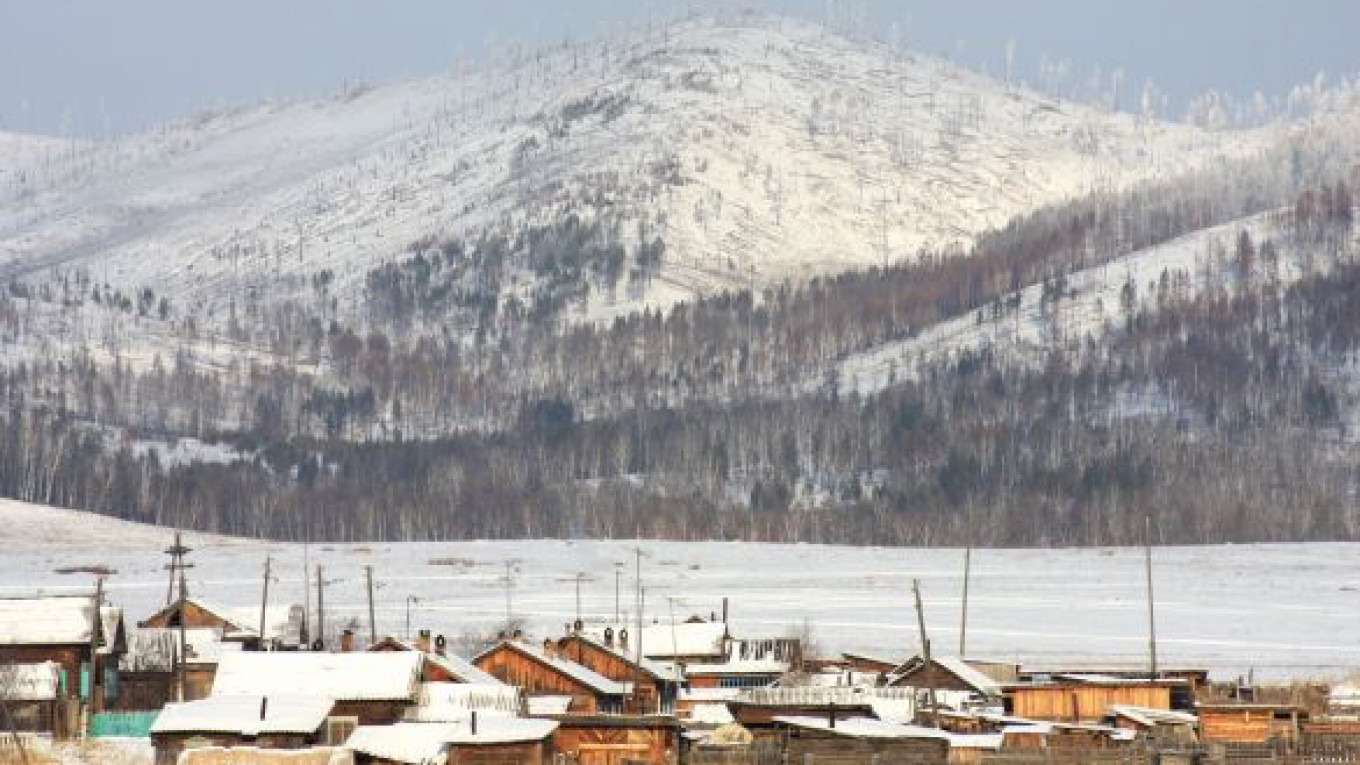Co-Opting Siberian Forests
"We understand we need investment. But if we decided to be friends, it should be even."
"You get something, I get something."
Irina Avdoshkevich, member, City Council, Kansk, Russia
"Everything here is Chinese."
"This [the Chinese logging boom] will last another five years, maybe. Then the Russians will start thinking, and they will also forbid logging."
Wang Yirem, overseer, lumber mill
 |
|
Kansk, the fourth largest city in the Krasnoyarsk krai (after the
regional capital, Norilsk, and Achinsk) hit the headlines on May 24: in a
hot spring day, a fire has broken out and destroyed 78 homes leaving
almost 300 people homeless. Two city dwellers were killed.
Upon extinguishing the fire, the regional authorities have launched an inquest to find out who is responsible for the tragedy. It was found soon that the devastating fire had occurred not because of somebody’s negligence or by a coincidence. It was a logical result of practices used by the local administration. Several timber companies, mostly Chinese ones, had operated in Kansk on a semi-legitimate basis. They were littering the city suburbs with sawdust; no one was controlling its utilization. On May 24, the smoldering sawdust has finally broken into flames. It is fortunate that such a major fire hadn’t occurred earlier – there were plenty of smaller fire accidents in the past |
China is rapacious. Hungry for natural resources, whatever they may be, wherever they may be. Its tentacles are long and determined and its diplomatic and trade and investment overtures to countries rich in natural resources and poor in infrastructure gain it opportunities throughout Asia and Africa. And elsewhere in the world. China geographically abuts Russia. In China, most of the forests have been well logged out. So China looks elsewhere.
In Siberia the rumble of logging trucks identifies China's rush to deforestation activities with Russia's permission. Trucks heaped with Siberian larch, Scots pine and birch make their way to sawmills owned and operated nearby, by Chinese; the total operation Chinese-run, the workers mostly Chinese, the products meant for the Chinese market. China may even one day, contest Russia for its Siberian land mass; it is sparsely populated by Russians and China's population continues to expand.
There are hundreds of Chinese-operated sawmills popping up the last few years alongside the Trans-Siberian Railway to help feed that populous country's appetite for wood. The Russian Siberians do benefit in jobs they can fill, working under Chinese overseers who communicate with them in Russian. The process of logging is fast making Russia a global leader in forest deforestation, a distinction of questionable value.
One that makes Siberian logging towns quiver in uneasy uncertainty for their future. All the manufacturing involved in consumer wood products is carried out not in Russia but in China which has restricted logging in China intending to preserve what is left of its own forests. Russia's central government appears to shrug off what certainly appears like exploitation.
Russia is labouring under the effects of sanctions, its economy struggling, and its timber exports to China amounted to $3.5 billion last year, a rise from 2013's $2.2 billion. Russia depleted its forests to the tune of roughly 6.6 million hectares last year alone. In the Amazon that number was 3.7 million hectares and the world frets about the climatic effect of deforestation in the Amazon.
Russia imports its own lumber from China, transformed into furniture, doors, flooring and an entire array of finished goods. The local Siberian economy has been stimulated, but at the same time Siberians feel resentment with this economic experiment where a remote region of Russia is being exposed to Chinese gluttony.
A pillar of the local economy at one time, now it is Chinese sawmills that saw raw logs into lumber. Leaving locals to process wood scraps and sawdust into particleboard, insulation and other related products. Kansk residents are upset that Chinese investors failed to revive the Kansk Biochemical Works, a factory producing ethanol from wood scraps.
Now it produces a local tipple called sawdust vodka. "There was no coniferous taste. It was pure alcohol. You threw in a little lemon and you were a happy man", explained Sergey Solovyov, a lumberjack.
 |
| Thinning forests above the village of Katangar, about 40 kilometers outside of Petrovsk-Zabaikalsk, testify to the depletion of the area’s natural wealth. Photo: Howard Amos |
Labels: China, Corruption, Deforestation, Forestry, Russia, Siberia

<< Home